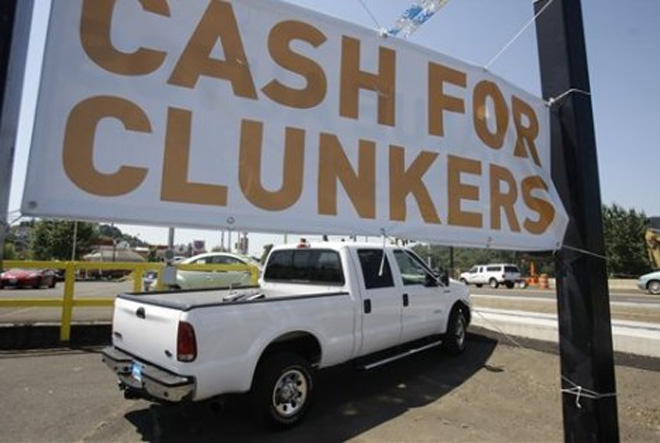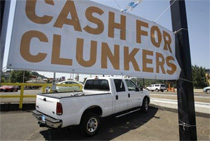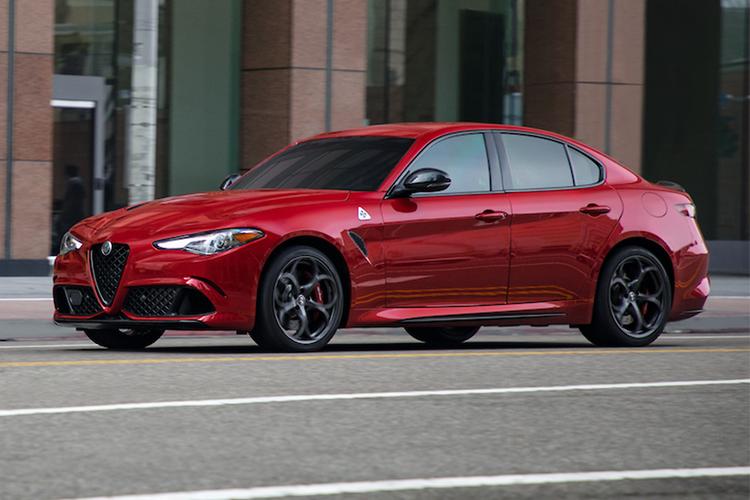And a failing car industry means a failing economy for any car-producing nation, like the US, the UK, or Germany.
So when America’s big three (Ford, Chrysler and General Motors – who directly employ 250 000 people between them) first revealed that they were heading for bankruptcy, it was estimated that one in 10 US jobs were on the line. $14 billion (R112 billion) was lent to General Motors and Chrysler by the US government towards the end of last year in a bid to prevent their bankruptcy, and the companies have since asked for more.
Another attempt to save the car industry is the Car Scrappage Scheme, in the UK, or Car Allowance Rebate System (CARS, or “Cash for Clunkers”), in the US. A similar programme is being operated in other markets like Germany and Korea.
In the UK car-owners will receive a grant of ?2 000 (R26 000) towards a new vehicle if they take their car of at least 10 years old to be scrapped. The government has budgeted ?300m (R4 billion) for this programme, and the vehicle manufacturers another ?300m (R4 billion).
In the US the CARS programme offers the public discounts of up to $4500 (R36 000) on their old car, and the government has invested $1 billion (R8 billion), and might well extend this by another $2 billion (R16 billion)! Germany has invested ?5 billion (R56 billion) in its own version of the system.
The proponents of the system say that, besides the obvious stimulation of the car industry, there are a host of benefits. Every car that is scrapped is replaced by a newer, more economical, more environmentally friendly and safer vehicle. It’s a boost to the environment and the economy at the same time.
This does make sense, but what are the drawbacks? Obviously there is the issue of where the cash is coming from: the taxpayer, and not everyone is happy about paying for someone else’s new car.
And is the environment benefiting as much as it seems? Another car on the road is another car built, and that means more greenhouse emissions in the manufacturing process, more water, steel and oil used. Would the real answer not be to build fewer cars, and to replace them when they NEED to be replaced? If car manufacturers fall by the wayside, maybe this is meant to be, and the strong will survive?
And just what kind of cars are being destroyed? It isn’t, as the name suggests, limited to “clunkers”. The car in the attached video is a Volvo S80 in seemingly great nick. Instead of it being sold to someone who needs a good car, it’s destroyed. The engine is run after the oil is replaced with something called “liquid glass”, or sodium silicate. Listen to that noise, and tell us if that makes sense!
So what is the answer? Is “Cash for Clunkers” a viable solution to the economical woes of the world, or is it just delaying the inevitable, and putting the environment under even more strain at the same time? And is there a case for a similar programme in South Africa?
Let us know your thoughts on the matter. E-mail [email protected]









